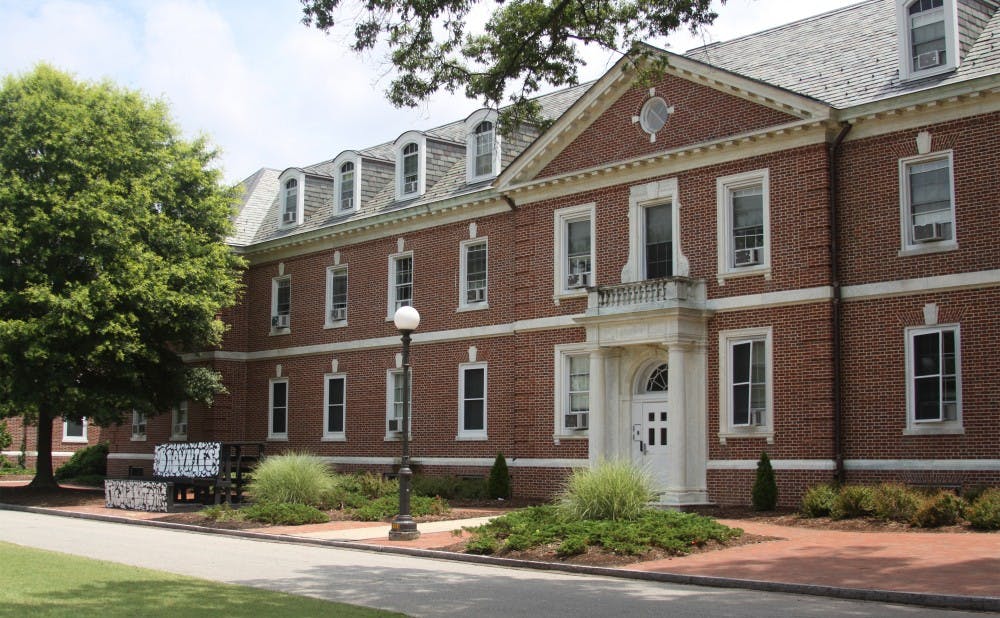There are several topics of conversation that accompany the start of spring semester (tell me more about abroad, juniors), but perhaps the biggest is the recruitment process for the Interfraternity Council, Panhellenic Association, and Selective Living Groups that takes place every January. In my years at Duke, I have seen just how valuable membership to a Greek organization or SLG can be. They provide built-in community. They facilitate mentor-mentee relationships between older and younger undergraduates and they provide opportunities to meet people on campus you might never have met otherwise.
But these groups are selective, which means not everyone can get in. And the reality of this type of rejection is too often swept under the rug.
Three years ago, I made my way through the rush process for a few of the non-Greek SLGs on campus. I went into rush looking for a fun new community on campus and an opportunity to duplicate the tight-knit residential experience I so valued in my first-year dorm. Plus, almost all of the friends I had made in my first semester were rushing some form of social organization. I had heard rumors that hallways in East Campus dorms became empty after rush, and when that happened, I didn’t want to be left behind.
So I rushed. I went to open houses, played dodgeball at Sky Zone, and skated around Wheels. I stood in common rooms and tried to be memorable in conversations where rushees outnumbered SLG members 10 to one. I grew to love the SLGs I was rushing, and I was excited about the budding friendships that I seemed to be forming. But when bid day came, many of my friends received bids. I was rejected.
In a recruitment process for social groups, rejection is indisputably personal. When you apply to Duke, you are evaluated on your academic and extracurricular merits. When you try out for a sports team, you are evaluated on your ability to play the sport. But when you rush a social group, you are evaluated on your personality. You can call it “vibes” or “fit with the group” if it makes you feel better, but at the end of the day, there are no clear qualifications for getting into a social SLG or a Greek organization other than how much the people in the group like you. So when friends of mine got bids to the SLGs that rejected me, I internalized the notion that I had a worse personality—or at least, the groups I had wanted to be a part of liked my friends better than they liked me.
And though you could argue that it’s not that black and white and that First-Year Ethan should have just gotten over himself, I wasn’t the only one who left my first-year January with a sour taste in my mouth. I remember how toxic it felt as the girls in my dorm who were rushing Panhellenic sororities wondered why they had been cut from their favorite chapter, or why their friend got invited back to a chapter when they didn’t, or what they could have done differently to get the bid they wanted. And for the rest of the semester, the names of SLGs and Greek chapters were plastered on dorm room doors, so when you walked to the shower, you were reminded of who was accepted where, and who didn’t get in at all.
Now that I am three years removed, I can see how inconsequential my rejection was for my social experience at Duke. Whether you don’t get the bid you want or you don’t rush at all, being unaffiliated does not need to limit your social life or place sanctions on which friends you can make, or keep. But I also got lucky. The friends I made in Brown Residence Hall, most of whom are affiliated, are still some of my closest at Duke. I had joined a dance group during my first-year fall, and it has provided me with a family away from home for the entirety of my Duke experience. Few people at Duke can say that their strongest long-term relationships were formed during their first few months on campus. And even if getting into clubs like my dance group is based on some other type of merit, they are still social organizations, and they are still selective. In too many cases, finding an organized community on this campus comes at the expense of that community being available to others.
This isn’t supposed to be about self-pity, and I’m not suggesting that we would be better off if we got rid of all selective social organizations on campus. I know many Duke students struggled in their first semester, rushed in January, and found a support system in their SLG or Greek chapter that changed the trajectory of their college experience, and I would never want to deny them that. But finding your social niche at Duke shouldn’t be a zero-sum game. So while there is much more to the Duke social experience than rush and selective living, we as a campus would do well to find a way to provide this kind of community to everyone who seeks it.
Ethan Ahuna is a Trinity senior. His column usually runs on alternate Tuesdays.
Get The Chronicle straight to your inbox
Signup for our weekly newsletter. Cancel at any time.

